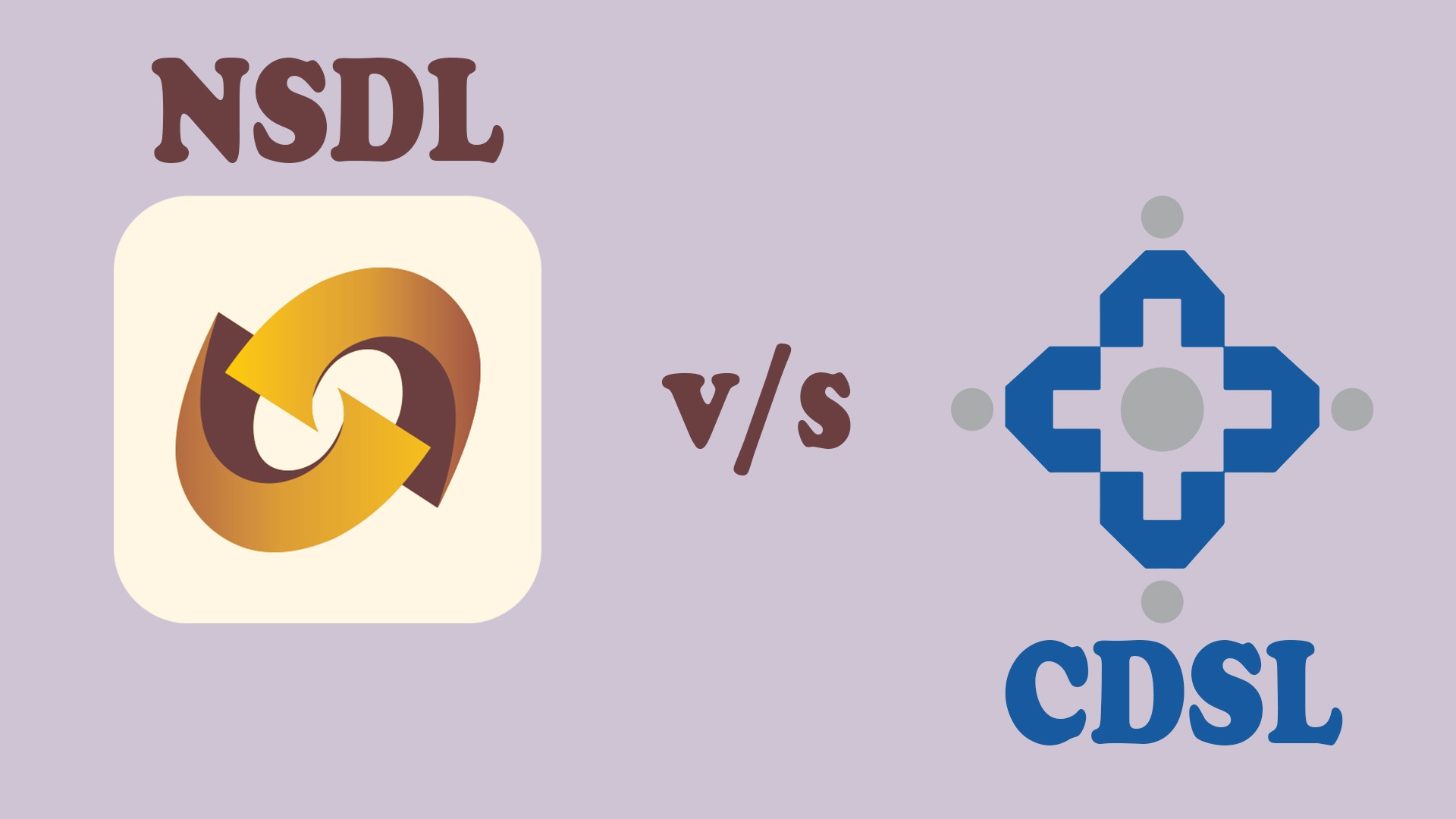CDSL vs NSDL: A Comprehensive Comparison

When opening a Demat account in India, you’ll likely encounter two depositories: CDSL (Central Depository Services Limited) and NSDL (National Securities Depository Limited). Both facilitate electronic trading and secure storage of securities, but they differ in structure, reach, and services. Let’s break down their differences and compare them across key parameters to help you decide which is better for your needs.
Why Compare CDSL and NSDL?
CDSL and NSDL are India’s only registered depositories, regulated by SEBI. While they serve the same purpose, their history, management, and market penetration vary. Your choice may depend on your broker’s affiliation, ease of access, or specific features.
CDSL vs NSDL: Side-by-Side Comparison Table
| Parameter | CDSL | NDSL |
| Establishment | 1999 | 1996 (India’s first depository) |
| Sponsor/Promoter | Promoted by BSE, SBI, HDFC Bank, etc. | Sponsored by IDBI Bank, UTI, NSE |
| Total Demat Accounts | Over 10 crore (as of 2023) | Over 3.3 crore (as of 2023) |
| Number of DPs | 580+ Depository Participants (DPs) | 280+ Depository Participants (DPs) |
| Management | MD & CEO: Nehal Vora | MD & CEO: Padmaja Chunduru |
| Market Focus | Caters to retail investors, SMEs | Dominates institutional investors |
| Key Features | Easi, E-CAS, Consolidated Account Statement | Speed-e, IDeAS, DIS for physical shares |
| User Interface | CDSL’s Easi portal for investors | NSDL’s Speed-e portal for access |
| Security | SEBI-regulated, SSL encryption | SEBI-regulated, robust encryption |
| Investor Services | SMS alerts, mobile app, grievance redressal | Online tracking, tax reports, mobile access |
Detailed Breakdown of CDSL vs NSDL
1. Establishment & History
- NSDL: Launched in 1996, it’s India’s oldest depository and pioneered dematerialization.
- CDSL: Founded in 1999 by the Bombay Stock Exchange (BSE) to create competition
2. Ownership & Sponsorship
- NSDL: Backed by institutions like IDBI Bank, National Stock Exchange (NSE), and Unit Trust of India (UTI).
- CDSL: Promoted by BSE, State Bank of India (SBI), HDFC Bank, and Standard Chartered.
3. Demat Accounts & Market Share
- CDSL dominates in retail investor accounts (over 10 crore), thanks to partnerships with brokers like Zerodha, Upstox, and Angel One.
- NSDL has fewer accounts but handles higher-value transactions, favoured by institutions and mutual funds.
4. Depository Participants (DPs)
- CDSL: Wider network with 580+ DPs, making it accessible in smaller towns.
- NSDL: 280+ DPs, concentrated in urban areas.
5. Services & Tools
- CDSL: Offers Easi for portfolio tracking and E-CAS for consolidated statements.
- NSDL: Provides Speed-e for online access and IDeAS for pledging shares.
6. Which is Better for Investors?
- Retail Investors: CDSL is more popular due to lower costs and broader DP reach.
- Institutional Investors: NSDL is preferred for high-volume trading and advanced tools.
Also Read: Why is the Market Falling So Much? Understanding the Key Factors behind Market Volatility
Conclusion: CDSL or NSDL – Which Should You Choose?
Your choice between CDSL and NSDL depends on your broker and investment needs. Most brokers are registered with both, so you won’t face limitations. However:
- Opt for CDSL if you’re a retail investor prioritizing ease of use and affordability.
- Choose NSDL for institutional-grade services or if your broker specializes in NSE trading.
Both depositories are SEBI-regulated and equally secure, so focus on convenience and your broker’s compatibility.
FAQ’s
Yes, via your broker by submitting a DIS (Delivery Instruction Slip).
Costs vary by broker, but CDSL is often more cost-effective for small investors.
Both offer robust support, but CDSL’s wider DP network may resolve issues faster.
Yes, but you’ll need separate Demat accounts linked to each depository.


